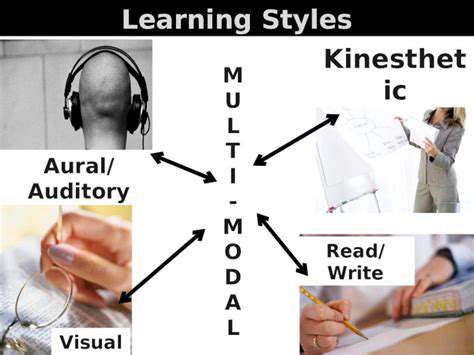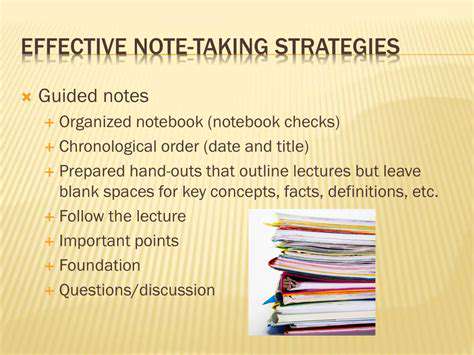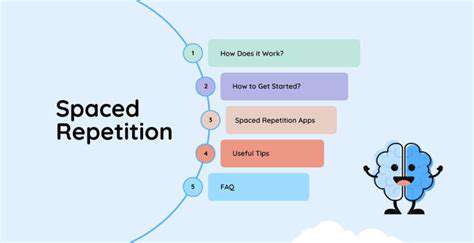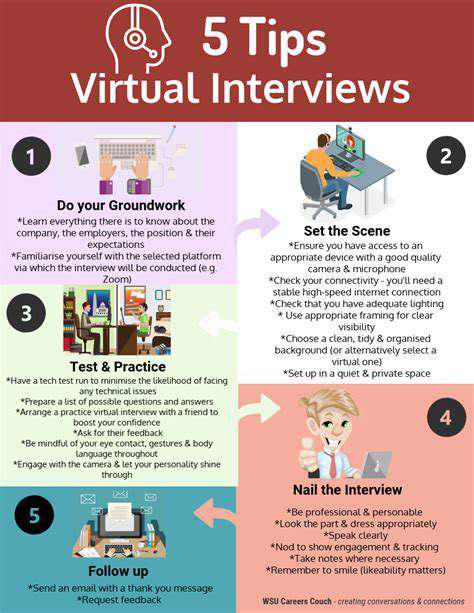How to Stay Motivated When Learning Alone
Building a Supportive Learning Environment
Creating a Dedicated Study Space
Establishing a designated study area is crucial for focused learning. This space should be free from distractions, ideally a quiet corner or room, and equipped with necessary resources like books, notebooks, and any technology needed. Creating a calming and organized atmosphere significantly impacts concentration and reduces procrastination. Ensure proper lighting, comfortable seating, and a clutter-free environment to foster a productive learning environment.
A dedicated study space helps to psychologically separate the learning activity from other aspects of your life, allowing for a more focused and efficient learning experience. It acts as a cue for your brain to transition into study mode and is a crucial step toward staying motivated and engaged in your learning journey.
Utilizing Effective Study Techniques
Employing various study techniques can boost comprehension and retention. Active recall, where you test yourself on the material instead of passively rereading it, is a highly effective method. Spaced repetition, reviewing information at increasing intervals, strengthens memory over time. Flashcards, mind maps, and practice problems are other valuable tools that can enhance your understanding and engagement.
Experiment with different techniques to discover what works best for you. Understanding how your brain processes information is key to maximizing your learning potential. By actively engaging with the material, you'll create a stronger connection with the subject, leading to increased motivation and retention.
Setting Realistic Goals and Timelines
Setting achievable goals that align with your learning objectives is essential for maintaining momentum. Break down large tasks into smaller, manageable steps. This prevents feeling overwhelmed and allows you to celebrate small victories along the way, reinforcing your motivation. Creating a realistic timeline for completing these goals helps stay on track and avoids procrastination.
Consider your learning pace and allocate sufficient time for each learning session. Avoid setting overly ambitious goals that might lead to frustration and demotivation. Remember to be flexible and adjust your plans as needed, ensuring that your goals remain attainable and motivating.
Building a Supportive Learning Community
Connect with other learners, either in person or online. Sharing experiences, asking questions, and collaborating on projects can foster a sense of community and encourage motivation. Joining study groups, online forums, or mentorship programs can provide valuable support and insights. Learning from others often sparks new ideas and perspectives, which can be highly beneficial for your learning journey.
Leveraging Technology for Learning
Technology can be a powerful tool for enhancing your learning experience. Utilize educational apps, online courses, and interactive platforms to make learning more engaging and interactive. Explore resources like Khan Academy, Coursera, and edX for a wealth of information and learning opportunities. Use technology to create personalized study plans and track your progress, which can further motivate you.
Rewarding Yourself for Progress
Celebrating milestones and rewarding yourself for consistent effort is vital for maintaining motivation. Establish a system of rewards for achieving specific goals, whether it's a small treat, a relaxing activity, or a personal accomplishment. This positive reinforcement reinforces good study habits and keeps you motivated throughout the learning process. Recognize your achievements, big or small, to appreciate your progress and stay motivated.
Seeking Support When Needed
Don't hesitate to reach out for help if you encounter challenges or feel discouraged. Talk to a mentor, tutor, or trusted friend about any difficulties you're facing. Seeking support is a sign of strength, not weakness, and can help you overcome obstacles and maintain your motivation. Remember that you're not alone in your learning journey; support systems are available to help you succeed.

Maintaining a Routine and Setting Boundaries
Establishing a Consistent Study Schedule
Creating a structured study schedule is crucial for maintaining momentum in your learning journey. A well-defined schedule, incorporating specific time slots for different subjects or learning activities, helps you stay organized and focused. This structured approach promotes consistency and prevents procrastination, enabling you to make steady progress towards your learning goals. It's important to be realistic and allocate enough time for each task, avoiding over-scheduling. This schedule should also be flexible enough to accommodate unexpected events or changes in your learning needs.
Consider breaking down large learning objectives into smaller, manageable tasks. This approach not only makes the learning process less daunting but also allows you to track your progress more effectively. Regular review sessions and scheduled breaks are also vital components of a robust study schedule, promoting both retention and preventing burnout. A well-structured schedule acts as a roadmap, guiding you through your learning journey and ensuring you stay on track.
Setting Realistic Learning Goals
Setting realistic learning goals is paramount to maintaining motivation. Unrealistic expectations can lead to frustration and discouragement, hindering your progress. Instead, break down your overall learning objectives into smaller, achievable milestones. This approach allows you to celebrate small victories along the way, reinforcing your motivation and building confidence. Regularly evaluating and adjusting your goals based on your progress is also essential, ensuring that they remain relevant and inspiring.
When setting goals, consider factors like your current skill level, available time, and learning style. A goal that aligns with your individual needs and capabilities is more likely to be motivating and sustainable. By focusing on achievable milestones, you're building a strong foundation for sustained learning and long-term success. Avoid setting goals that are too ambitious, as this can lead to feelings of inadequacy and demotivation.
Defining Clear Boundaries
Establishing clear boundaries between your learning time and other activities is essential for effective focus and preventing burnout. This involves creating dedicated study spaces and times, minimizing distractions during these periods. Designate a specific area for learning, free from interruptions, and communicate these boundaries to others, especially household members. This helps maintain concentration and prevents unnecessary distractions from derailing your learning efforts.
Prioritizing Self-Care
Prioritizing self-care is an integral part of maintaining motivation during the learning process. Adequate sleep, healthy nutrition, and regular exercise are critical for cognitive function and emotional well-being. When you take care of your physical and mental health, you are better equipped to approach your learning tasks with energy and focus. Make time for activities that you enjoy, such as hobbies or spending time with loved ones, to prevent burnout and maintain a healthy work-life balance.
Managing Distractions Effectively
Identifying and managing distractions is crucial for maintaining focus and maximizing learning efficiency. Common distractions include social media, notifications, and household tasks. Strategies for managing these distractions include turning off notifications, using website blockers, or creating a dedicated workspace. Creating a distraction-free environment helps you concentrate on your learning material, leading to better understanding and retention.
Utilizing Learning Resources and Support Systems
Leveraging learning resources and support systems can significantly enhance your learning experience and motivation. Utilizing online forums, study groups, and tutoring services can provide valuable insights and perspectives. Connecting with others who are also learning can foster a sense of community and accountability, making the learning process more engaging and rewarding. Seeking help from mentors or instructors when needed is also vital to overcome challenges and maintain a positive learning trajectory. Remember that seeking help is a sign of strength, not weakness.

Read more about How to Stay Motivated When Learning Alone
Hot Recommendations
- How to Stay Productive While Working Remotely
- Tips for Managing Conflict with Coworkers
- Entrance & Certification Exams (升学考试)
- How to Improve Your Storytelling Skills (Speaking)
- How to Find Profitable Side Hustles
- Tips for Preparing for the TOEFL iBT Home Edition
- Guide to Switching Careers from [Industry A] to [Industry B]
- How to Run an Effective Hybrid Meeting
- Tips for Marketing Your Side Hustle on Instagram










